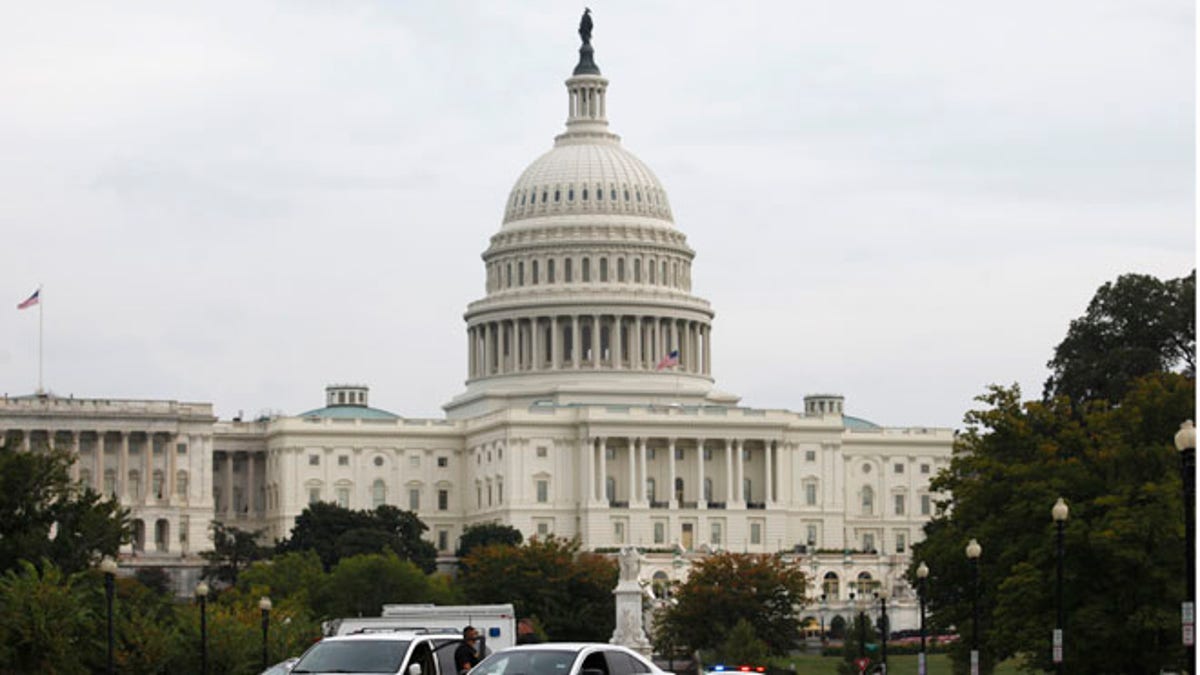
U.S. Capitol in Washington October 3, 2013. (Reuters)
Senate Republicans blocked a bill Thursday that would renew more than 50 expired tax breaks affecting millions of businesses and individuals.
The bill has widespread bipartisan support, but Republicans were unhappy because Senate Majority Leader Harry Reid, D-Nev., wouldn't agree to vote on GOP amendments. A similar dispute derailed an energy bill earlier this week.
"Why are Washington Democrats so afraid of a free and open exchange of ideas?" Senate Minority Leader Mitch McConnell, R-Ky., said. "What are they afraid of?"
Reid called the dispute over amendments a "phony issue."
"All this amendment stuff is just the talking points they have today," Reid said. "If they think it's going to help the country to kill this package that was exquisitely put together by the Finance Committee, I think that's too bad."
Almost every year, Congress routinely renews the tax breaks. This year, though, they were allowed to expire at the start of the year. The package has strong backing from the business community but would add about $85 billion to the budget deficit.
Thursday's vote was 53 to 40, which was seven votes shy of the 60 votes needed to advance the bill. Some Republican senators said they expected the bill to come up again, perhaps after congressional elections in November.
"We'll get this bill through one way or the other," said Sen. Orrin Hatch of Utah, the top Republican on the Senate Finance Committee. But, he added, "I consider the way the Senate is being run right now to be an absolute tragedy."
Republican amendments included making some of the tax cuts permanent while adding others, including the repeal of a medical device tax that helps fund President Barack Obama's health care law.
The bill pairs tax breaks that affect millions with others that don't.
Among the biggest breaks for businesses:
-- A tax credit for research and development.
-- An exemption that allows financial companies to shield foreign profits from being taxed by the U.S.
-- Several provisions that allow businesses to write off capital investments more quickly.
-- A generous tax credit for using wind farms and other renewable energy sources to produce electricity.
The biggest tax break for individuals:
-- People who live in states without an income tax could deduct state and local sales taxes on their federal returns.
-- Struggling homeowners who get their mortgages reduced would be protected from paying income taxes on the amount of debt that was forgiven.
Other more narrow provisions include tax breaks for film and theater producers, NASCAR race track owners, manufacturers of electric motorcycles and teachers who spend their own money on classroom supplies.




